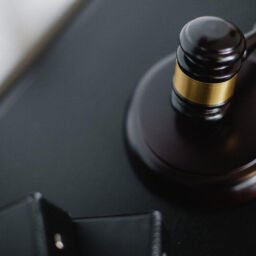INTRODUCTION
Additional District Magistrate vs. Shivkant Shukla is the landmark judgment. The “Habeas Corpus” is another name for this case. This is the case in which the harsh judgment was passed by the Judges. Where it was said that as per of the Constitution, the President proclaimed on 25th June 1975, that there is a critical emergency where internal instability in India poses a threat to the country’s security. The President announced on June 27, 1975, in exercising the authority provided under of the Indian Constitution, that under the individuals and foreigners have the power to move in the court for the petition of his rights conferred. The Constitution, as well as all procedures that are waiting before a court for the implication of the rights, would be remain suspended during the national emergency. In simple terms, the fundamental rights of the citizens were violated.
FACTS
In Allahabad High Court, When Indira Gandhi’s election to the Lok Sabha was contested, where Justice Sinha had found her guilty of unfair methods and announced her election null and void. This means that she was debarred from her position for six years. Indira Gandhi took her case to the Supreme Court. But, Supreme Court denied giving any relief to her. As a result, she decided to invoke the Constitution and announced an emergency on June 26, 1975. As a result, was invoked, suspending the right to petition the Supreme Court to enforce A.B. Vajpayee, Jay Prakash Narayan, and Morarji Desai were also arrested under the which allowed for imprisonment without trial. The Prime Minister’s actions were strongly criticized, and she was unfairly detained and imprisoned. Many persons who were detained under the Maintenance of Internal Security Act (MISA)petitioned various High Courts under which gives the Right to Constitutional Remedies, to protect liberty through the application of the Writ of Habeas Corpus, which grants remedy to those who have been wrongfully imprisoned.
MAIN ISSUE
Is it possible to file a writ petition in a High Court for the enforcement of the Fundamental Rights during the time of state emergency?
ARGUMENTS
Petitioner said that if the State does not release any inmates once the Advisory Council believes there are no legitimate grounds for his arrest, it will be held as a violation of Article 22. Even though article 22 is a basic right, it does not apply to habeas corpus. According to, Article 359 (1) of the Constitution, the President has ceded the right to move to a court for the enforcement of the right under Article 19. The limited aim of article 359, according to the respondents, is to eliminate constraints on the legislature’s power so that it can legislate to violate basic rights outlined in the presidential decree while the emergency is in effect. The Maintenance of Internal Security Act,1971 is legislation that governs pre-trial detention, according to the defence. Every arrest warrant issued by the executive branch must be carried out following the law’s requirements. The defendants argue that Article 21 is not only the way of information about the right to life and personal liberty. Non-fundamental constitutional rights obtained from Articles 256,265,361(3)do not infringe the natural and legal rights to personal liberty. Legal rights may only be taken away by legislation, not by the executive branch. At last, it was demanded that the Constitution’s preamble must include the word the Democratic Republic.
JUDGEMENT PASSED
The decision was made by a 4:1 majority, with four judges agreeing that people’ fundamental rights provided by the Indian Constitution should not be available during an emergency. Even, no citizen shall have the right to approach to High Court for petition of Habeas corpus during Presidential rule and all other proceedings shall remain suspended. Whereas Justice Hans Raj was not in favour of the judgement. He said that Article 21 is essential for every citizen and no individual shall be deprived of it. In the absence of Article 21 also, the state has no authority to deprive anyone of their life.
CONCLUSION
Additional District Magistrate v. Shivkant Shukla case was highly criticized by the people. In this case, Supreme Court passed the judgment in the favour of the ruling Government and the judgment was in controversy to the individual freedom. Thereafter, Supreme Court gives the permanent character to article 21 and linked it with Article14 and Article 19 (known as the “Golden Triangle “of the Constitution ). Further, this judgment was overruled in the case of Justice K.S.Puttaswamy(Retd.).It is the landmark judgment where the right to privacy was protected under Articles14,19 and 21of the Constitution.
Author(s) Name: Gaganpreet Kaur Gill (Chandigarh University, Mohali)
















